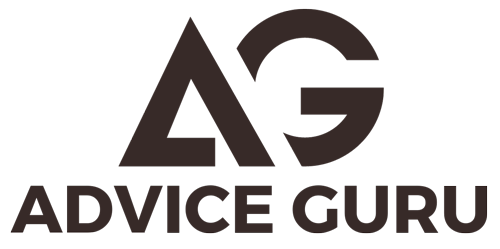Running a small business comes with a multitude of responsibilities, one of which is managing your finances. As your business grows, tracking income, expenses, and invoices can become overwhelming if done manually. That’s where accounting software comes in handy. In this comprehensive guide, we will explore the top accounting software options available for small businesses, including FreshBooks, Quickbooks, Wave, Zoho Books, and Xero. By the end, you’ll have a clear understanding of which accounting software is best suited for your business needs. If you start searching the options below, you can find the best deals for you.
A Comprehensive Guide to Accounting Software
Accounting software is designed to simplify the financial management process for small businesses. It automates various accounting tasks, allowing you to focus on growing your business rather than getting bogged down in administrative work. When choosing accounting software, there are several factors to consider:
- Features and functionality
- Scalability and customization
- User-friendliness
- Pricing
- Integration with other business tools
Exploring the Top Accounting Software Options
There are numerous accounting software options available, each with its own unique features and benefits. Let’s take a closer look at the top choices:
Comparing FreshBooks, Quickbooks, Wave, Zoho Books, and Xero
The following comparison will help you make an informed decision when selecting the right accounting software for your small business:
- FreshBooks: FreshBooks is a user-friendly accounting software that simplifies invoicing, expense tracking, and financial reporting. It offers time-saving features like automated billing and integrates with popular business tools.
- Quickbooks: Quickbooks is the industry standard for accounting software. It offers a comprehensive suite of features, including invoicing, payroll management, and financial reporting. Quickbooks is highly customizable and can scale with your business as it grows.
- Wave: Wave provides free accounting software that is perfect for small businesses on a tight budget. It offers essential features like invoicing, expense tracking, and receipt scanning.
FreshBooks: Simplify Your Accounting Tasks
As a small business owner, you need an accounting software that helps you efficiently manage your finances. FreshBooks is a great option that offers a user-friendly interface and a wide range of features:
- Customizable invoicing templates that allow you to brand your invoices and make them look professional.
- Time tracking functionality to accurately bill clients for the hours worked on projects.
- Expense tracking, enabling you to easily track and categorize expenses for tax purposes.
- Automatic late payment reminders to ensure you get paid on time.
The Features and Benefits of FreshBooks
FreshBooks provides several features that small business owners find valuable:
- Automated Invoicing: FreshBooks allows you to automate the invoicing process, saving you time and ensuring timely payments from clients.
- Expense Tracking: Track your business expenses effortlessly by uploading receipts or linking your bank account directly to FreshBooks.
- Financial Reporting: Get a clear overview of your business’s financial health with customizable reports and real-time insights.
- Time Tracking: Easily track billable hours for accurate invoicing and efficient project management.
Intuit Quickbooks: The Industry Standard for Accounting
When it comes to accounting software, Quickbooks is considered the gold standard in the industry. It offers a comprehensive suite of features designed to streamline your business’s financial management:
- Manage invoices, expenses, and sales receipts all in one place, making it easier to keep track of your finances.
- Automate payroll processing, saving you time and ensuring your employees get paid accurately and on time.
- Generate detailed financial reports to gain valuable insights into your business’s performance.
- Utilize integrations with banks and other financial institutions to streamline your bank reconciliation process.
How Quickbooks Can Streamline Your Business Finances
Quickbooks offers several features that can greatly simplify your financial management tasks:
- Invoicing and Payments: Create customized invoices and accept online payments, making it easier for your clients to pay you.
- Expense Tracking: Categorize and track expenses in real-time, making it simpler to monitor your business’s spending.
- Payroll Management: Automate payroll calculations and tax deductions, ensuring accurate and timely payments to your employees.
- Bank Reconciliation: Connect your bank accounts to Quickbooks for automatic synchronization and effortless bank reconciliation.
Wave: Free and Easy Accounting for Small Businesses
For small businesses on a tight budget, Wave offers a free accounting software solution that doesn’t compromise on functionality:
- Generate professional-looking invoices and track payments effortlessly, improving your cash flow management.
- Stay on top of your expenses by categorizing them and linking them to corresponding transactions.
- Scan and upload your receipts directly to the platform, eliminating the need for manual data entry.
- Access real-time financial reports to gain insights into your business’s financial health.
Managing Your Finances with Wave: A Step-by-Step Guide
Here’s a step-by-step guide to using Wave for your small business:
- Create your account and set up your business profile.
- Customize your invoice templates to reflect your brand identity.
- Add your bank account and categorize your transactions.
- Generate invoices and send them directly to your clients.
- Track payments and expenses to maintain accurate financial records.
- Review your financial reports to gain insights into your business’s performance.
Zoho Books: Powerful Accounting Made Simple
Zoho Books offers a comprehensive accounting software solution suitable for small businesses of all types:
- Create professional invoices and send them to your clients instantly, allowing for faster payment processing.
- Track your projects and manage your expenses to ensure you stay within budget.
- Manage your inventory efficiently with stock tracking and reorder point notifications.
- Generate detailed financial reports to assist in making informed business decisions.
It All Adds Up: Choosing the Right Accounting Software for Your Needs
When selecting accounting software for your small business, consider your specific needs and requirements. Evaluate features, ease of use, scalability, and integration with other tools. Keep in mind the size and complexity of your business, as well as your future growth plans. And remember, while cost is an important factor, it should not be the sole basis for your decision.
By exploring the top accounting software options and considering their features and benefits, you can make an informed decision that will streamline your financial management processes and help your small business thrive.
















